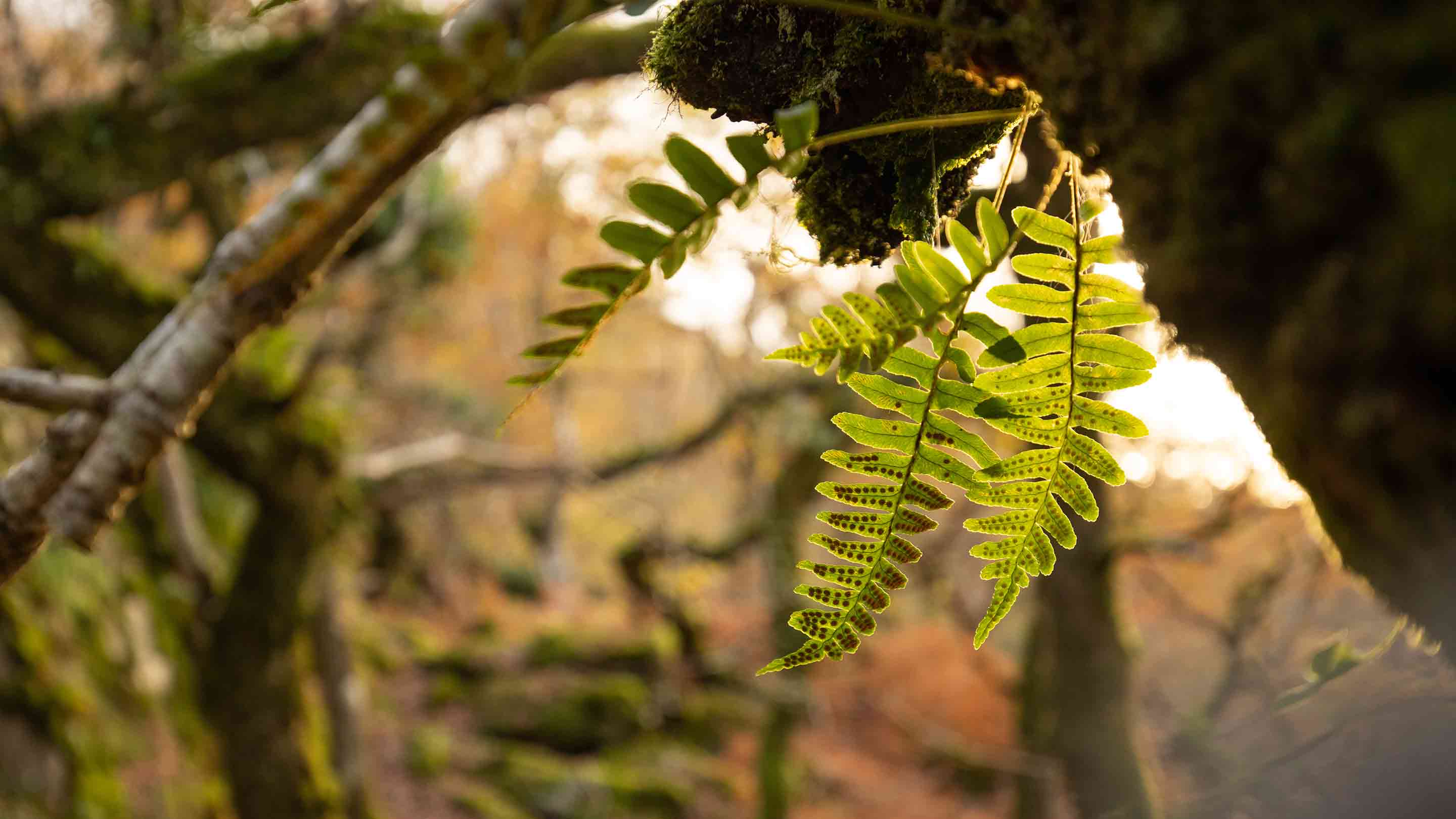The first 145 hectares have been secured to create temperate rainforests as part of the “largest single corporate donation for UK nature-based solutions”, according to a progress report from the charity involved.
The £38m funding from insurance firm Aviva last year to the Wildlife Trusts aims to restore the rainforests to Britain.
It is looking to create 1,800 hectares of new rainforests in the UK over the next century removing an estimating 800,000 tonnes of carbon dioxide from the atmosphere.
The areas of the scheme are in Devon, Wales and the Isle of Man, according to latest progress report from the charity.
On the Isle of Man 8,000 trees have been planted by Manx Wildlife Trust to create a new temperate rainforest at Creg y Cowin. A further 27,000 trees are being planted over the next four years.
The programme is prioritising sloping areas as plants and animals are likely to migrate to higher ground in search of cooler conditions amid rising temperatures globally.
The planting of the temperate rainforests is seen as important to mitigate against future climate change threats, according to The Wildlife Trusts.
“As a UK-wide programme, with a 100-year timeline it is directly impacted by climate change, said the charity.
“As the name implies, these woodlands require humid, temperate conditions all year round to survive.
“The UK’s remaining fragments of this globally rare habitat are found along the damp Atlantic fringes of the west and north of the British Isles. Temperate rainforest needs relatively high annual rainfall, which is well spaced throughout the year, cool average temperatures and high humidity to thrive.
“The risks posed by a warming, drying climate to this habitat are evident, so a number of measures are embedded within the programme to mitigate these future threats.”
It adds that all the Aviva temperate rainforest sites are being registered through the UK Woodland Carbon Code (WCC) “which provides a mechanism to model carbon sequestration over 100 years”.
The Wildlife Trusts have revealed progress on its environmental link up with Aviva in a report published this month on climate changes impact on nature.
Drought risk
This says that drought is the current leading threat to its UK nature reserves for the first time.
It estimates that almost half of Trusts’ 2,600 reserves “will be in areas of extreme wildfire risk”. Three in four are in areas where summer temperatures will rise by an additional 1.5°C in the next 25 years.
Other work being taken by Trusts to mitigate against climate change is to boost fenland resilience in Bedfordshire, Cambridgeshire and Northamptonshire.
Meanwhile in Norfolk marsh land is being adapted.
“The Wildlife Trusts are taking action to adapt to climate threats across all our land and marine habitats through helping nature to recover, slowing the flow of rivers, and restoring peatlands,” said charity’s director of climate change and evidence Kathryn Brown.
“This, in turn, supports wildlife and people to be more resilient to drought, wildfire, heatwaves and flooding.
“Nature-based solutions are now nature-based necessities, and we must all embrace the role that nature can play in enabling landscapes to adapt.
“We've seen one climate record after another broken over the past 12 months. The UK’s natural habitats, and the wildlife that depends on them, are under huge pressure so it’s vital that UK Government raises ambition on adapting to climate change.”
In announcing its link up with The Wildlife Trusts last year Aviva group chief executive Amanda Blanc said: “The fact that Britain’s native rainforests will take carbon out of the Earth’s atmosphere is reason enough to restore them. But on top of that, they’re incredibly rare and beautiful.
“This vital work we are undertaking with The Wildlife Trusts will give communities access to these sites, improve wellbeing and show how biodiversity fights and reduces the impacts of climate change.
“Aviva is proud to play its role to re-establish temperate rainforests in the UK, helping the UK become the world’s most climate-ready large economy.”
Drought is the leading threat to UK nature reserves. Our new report, Embracing Nature, shows:
— The Wildlife Trusts (@WildlifeTrusts) August 14, 2024
🌡️ By 2100 temperatures will rise by 2°C
🌳 2.600 of our reserves will be in areas of wildfire risk
🦋 Pollution, invasive species & habitats are at risk
More👉🏼 https://t.co/LRwwShb8aq pic.twitter.com/usWxWtyxfm







Recent Stories